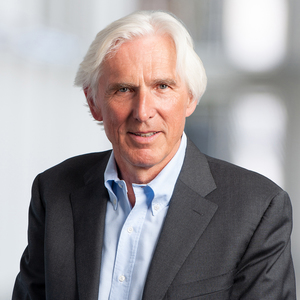Lockdown and Leverage: What the smart money is doing now to prepare for the next crisis

By Dr Thomas Heyn, Managing Partner Jack Russell Munich / AltoPartners Deutschland and Global AltoPartners Operating Committee member
In my practice, I am fortunate to be consulted by CEOs who have spent the lockdown proactively. No travel and fewer meetings have freed them up to think and strategize. They are the wise ones who have, in the words of Winston Churchill, not allowed a good crisis to go to waste. They have spent this time reviewing, redefining, relaunching, redeploying, reimaging and reinventing the future.
There are two camps: those trying to restore business-as-usual, and those making changes to capitalize on opportunities and replace lost income streams. These range from the modest (such as changes to real estate strategies as a result of flexible work arrangements), to travel agents who pivoted into importers of protective clothing, and car rental companies who outsourced drivers and vehicles to deliver groceries and essentials. Regardless of the extent of the impact of the current crisis on these organisations, I have the same question: will the people who got you this far, be the same people to take you safely and profitably into the Post-COVID economy? Because while I lament the over-used term “the new normal”, the fact is that business and societies will look different when this is over.
Across our alliance in 32 countries, our partners are reporting the same thing: an increase in the number of CEOs and business owners discreetly seeking advice on how to evaluate whether their current leadership team is aligned to future business needs. This is not (necessarily) about reducing headcount – this is about reassessing the team who will be leading your people in the critical weeks and months ahead. Just as COVID turbocharged the move to digital and exposed those paddling naked in the analogue swamp, so too has it uncovered the need for a new breed of executive, with a different set of skills and a different approach to leadership.
What are the skills and attributes required for people to lead remotely with trust; how do you prevent people becoming overwhelmed; how do you ensure those at the top do not become disconnected from the reality on the ground?
As many organizations are discovering, the management skills-set post-crisis looks different, and this is an excellent opportunity to take stock.
Results gained last quarter through a combination of micro-management and deference to central authority may have limited success with remote teams. Managers who compensate for a perceived loss of control by checking up on remote workers every minute and ambushing them with calls at 5 to 5 on a Friday afternoon, is fertile ground for hostility and loss of morale. The best plans in the world can be derailed by having controllers in charge when the job requires collaborators. In my experience, well-timed executive assessments are a critical component of any big strategy re-think and executive search partners are well placed to assist. They usually have a long-standing relationship with their clients and understand their business and culture, and yet are sufficiently independent and removed to provide insights and appraisals untainted by internal politics. Done properly, an executive assessment exercise provides you with a clear benchmark against which to map and match the available talent pool against the changing needs of your company. Sidestep this process, and you could very likely end up with a nicely bound strategy in a draw and a business that is continuously pulling toward the familiar, whether it is in the best interests of the company or not.
Besides, I am a great fan of Gauss’s allocation curve: at any one time, you will have people on your team who are either no longer performing or are no longer performing optimally. Even if you’re looking to do nothing differently, this is a good time to clean house. Regardless of your post-COVID strategy, no company can afford passengers – and we especially cannot afford passengers that are altering the script to maintain their comfort levels.
The brutal truth is that the people who managed your business to this point are not always the people who are going to be able to take it forward. Globally, the private sector has demonstrated the levels of speed, agility and devolved decision making that business schools dream of. Across the board, the bar has been raised, and the competition is about to get a whole lot stiffer. It’s time to make sure your leadership team is equipped and up to the challenge.
Disagree? I’d love to hear from you. T.heyn@altopartners.de
